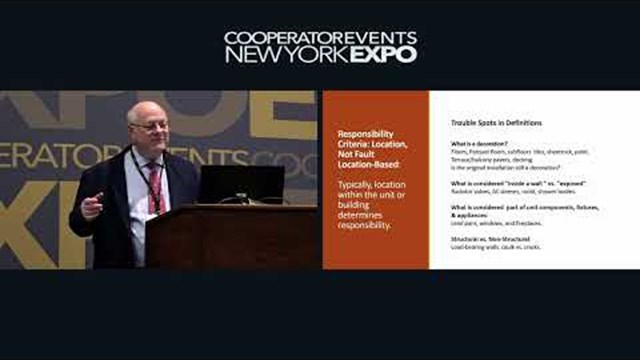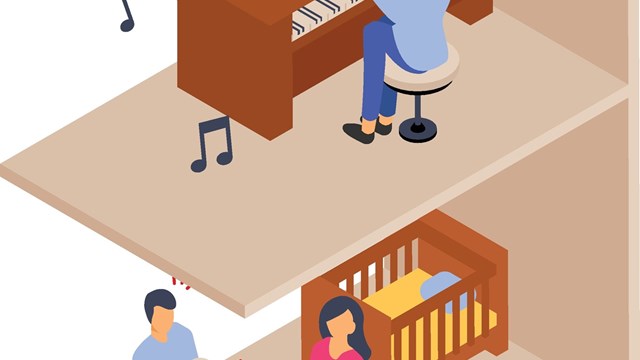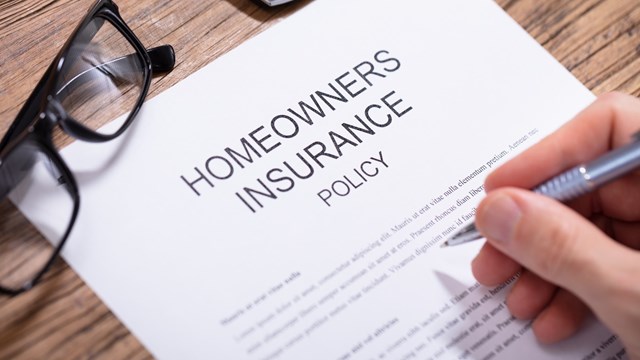
Q. My apartment was flooded four times with sewage, along with kitchen and bathtub pipes bursting. As a result, mold is everywhere in my apartment. The co-op board refused to do mold remediation except for the four sewage leaks in the kitchen; the bathtub and kitchen pipes were heavily infested. I refused to pay maintenance until the mold was remediated. The co-op went to court to evict me, and their complaint was dismissed. I went to civil court three times, and the court ruled in my favor, but the co-op refuses to carry out the mold remediation as ordered.
Now they’ve repaired my apartment, but the mold issue remains. Am I obligated to moved back into my apartment even though I’m allergic to mold, and continue to withhold the maintenance fee until the mold is remediated and cleared?
—Exasperated Shareholder
A. “Mold, and toxic mold in particular, has been a growing problem for co-ops and shareholders alike,” says attorney Deborah B. Koplovitz of the Manhattan firm Anderson Kill P.C. “While most litigation involving mold has arisen in traditional landlord/tenant situations and not co-ops, there are two legal premises that seem to be relevant to your situation:
“The first is a claim called constructive eviction. The second is a claim for the breach of the warranty of habitability.
“In order to establish a claim of constructive eviction, the New York State Court of Appeals in Barash v. Pennsylvania Terminal Real Estate Corp. explained that a tenant must establish that the landlord’s ‘wrongful acts substantially and materially deprived [the tenant] of the beneficial use and enjoyment of the premises.’
“Constructive eviction exists in situations where although there has been no physical eviction of the tenant, the landlord’s wrongful acts materially deprive the tenant of the beneficial use of the apartment. A tenant, however, must actually abandon possession of the apartment in order to claim that there was a constructive eviction.
“And the claim is not absolute. Shareholders/tenants can run into problems asserting a claim for constructive eviction if they cannot establish that they were forced to apartment as a result of any condition created by the leaks or mold. If, for example, the facts relating to the mold conditions are not so bad that you cannot live there, a court may hesitate to agree that you have not been living in the apartment after the co-op made the repairs because of the mold in the pipes. (For a more in-depth example, see 170 W. End Ave. Owners Corp v Turchin.). You should likely consult with a mold company and an attorney, so you have a better understanding of both the material facts and the law before making any decision about residing elsewhere.
“However, even if you do decide to move back in to the apartment, you still may be able to make a claim for a rent abatement. This is because by statute, New York’s Real Property Law section 235-b(1), which applies to co-ops (but not condos) provides that in every residential lease, the landlord warrants that the apartment ‘and all areas used in connection therewith in common with other tenants or residents are fit for human habitation and for the uses reasonably intended by the parties, and that the occupants of such premises shall not be subjected to any conditions which would be dangerous, hazardous or detrimental to their life health or safety.’
“Therefore, in general, shareholders/tenants are entitled to a maintenance abatement under the warranty of habitability, provided certain conditions are met. One of those conditions is that the tenant did not create the problem. Here, your co-op may claim that the mold condition in the pipes is your fault for not cleaning the drain’s seal.
“In addition, court decisions relating to the warranty of habitability can often turn on the extensiveness of the breach, the manner in which it has impacted on your health, and even the measures taken by the co-op to alleviate the violation. The test is whether or not the mold has deprived you of essential functions which a residence is expected to provide. While for example, a working elevator in a high-rise building is an essential attribute of such a building, from the facts you have given, it is not so simple to say whether the mold in the pipes that you are claiming is a deprivation of essential services.
“Without having the benefit of knowing the exact terms of the court order, and what the co-op has done to make repairs, it is not so easy to know whether you have a strong warranty of habitability claim. First, the co-op may have taken reasonable measures to abate the mold, and there may be a relatively easy solution to abating any remaining mold in the pipes by employing the use of non-toxic cleaning solutions or fungicides that will kill the mold that is living in the organic matter in or around the pipes. Second, if the mold is not the co-op’s obligation to repair, but yours, you will not be able to rely on the warranty of habitability as a basis for obtaining a rent offset.
“Before you make any decision about what to do though, you should have an attorney carefully review the court order regarding the co-op’s repair obligations, and have a professional advise you on the cause and existence of mold in the pipes, as well as a safe solution for abating that mold.
“Hopefully, one way or another, this issue can be swiftly resolved so you can comfortably and safely move back home.”









Comments
Leave a Comment